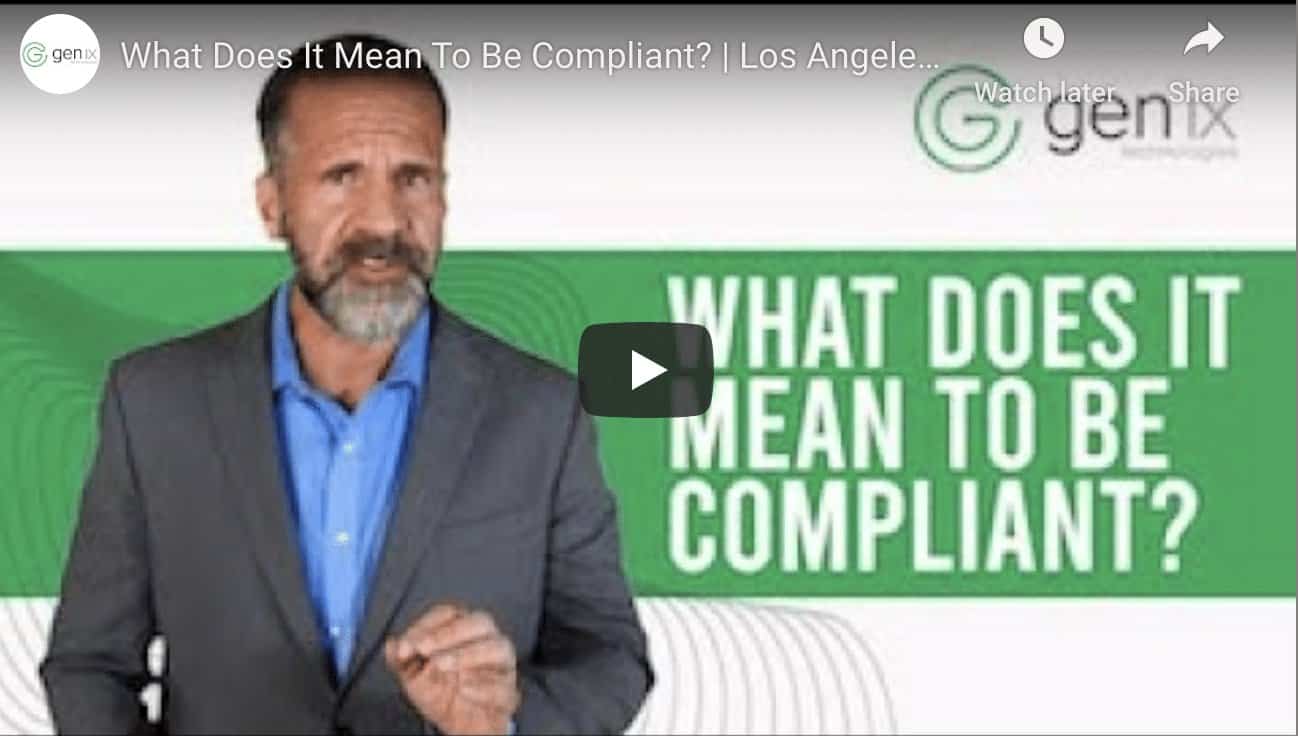What Does It Mean To Be Compliant?
To be compliant, you must follow regulatory standards, with these standards differing from one industry to the next. Being compliant also means obeying rules applying directly to your industry guidelines along with any state rules and federal standards, some of which may be government ordained. Probably the most important aspect of compliance to remember is that staying in compliance doesn’t mean your business is 100% secure. In fact, compliance and security are totally different elements. Let’s take a closer look at compliance and security and how you can integrate the two to extend your business or organization’s longevity.
What Is Compliance?
Your company must initiate practices that keep you in compliance with applicable laws and mandates. Take, for example. You are the owner of a medical practice that offers counseling services. According to HIPAA, you are required by law to protect your patients’ medical and personal data and any data that is collected, created, and/or stored while the person is a patient of yours. If you fail to stay in compliance with HIPAA laws, you run the risk of getting sued by one or more of your patients, as well as having to pay massive fees and penalties according to HIPAA non-compliance laws.
Maintaining compliance is a great marketing tactic. You can market your agency or business as an entity that stays in full compliance with industry standards and mandated laws, which is a huge plus when an audience receives your marketing messages.
So, yes, compliance is necessary to keep your business afloat, but it doesn’t necessarily mean you have taken all precautions possible to keep your data completely secure. More so, it doesn’t mean you have taken a look at all possible access points in which a data breach may occur, meaning compliance doesn’t protect you against every security threat.
What Is the Difference Between Security and Compliance?
When you comply, this means you have met certain standards, and you were awarded a compliance certificate. To be completely secure, this requires ongoing persistence regarding any security practices. It means you are doing your due diligence about protecting your company’s data, including taking a birds-eye view of your business regarding how assets are protected, how they came to be, how they depend on one another, and much more.
Can You Be Secure Without Being Compliant and Vice Versa?
Yes, you can keep your company secure without being compliant and vice versa, but this doesn’t mean you can keep your business afloat. To keep your doors open, you must stay in compliance with any compliance standards. Any security measures you put into place are out of your own choice, but they aren’t necessarily mandated to keep compliance. So, while security and compliance are not the same, you need compliance to stay in business. Yet again, just because you comply doesn’t necessarily mean your company is secure from all security breaches, so keeping an eye on security practices and policies is essential to extending business longevity.
What Should You Do?
The important thing to remember is that compliance and security do go hand in hand. Your compliance is mandated for business law purposes. Security, although it isn’t mandated, it is crucial to keeping current customers happy and attracting new ones. Any type of security plan should be living and ongoing. It should detect and address any new possible threats while always ensuring you stay in compliance with applicable standards, regulations, and laws.




